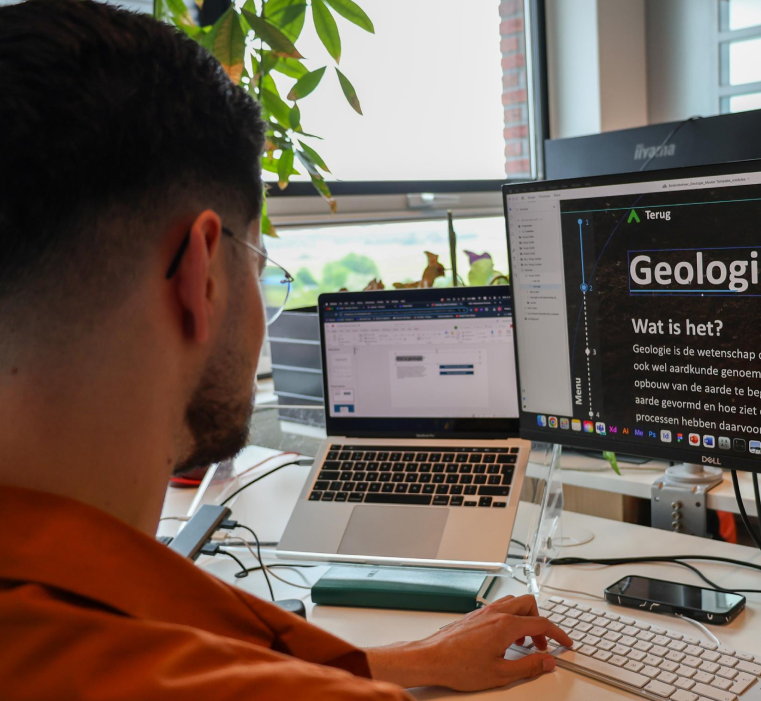
Imagine this: someone is taking an e-learning on renewable energy and suddenly asks, “If solar panels are so efficient, why don’t we just put them in the Sahara to power the whole world? This is the moment where learning becomes fun: a spontaneous question born of genuine interest. But then?
In traditional e-learning, this would be a dead end. The participant would have to search for complex studies on energy transportation, infrastructure and geopolitics. Time lost, focus gone, curiosity extinguished.

The omniscient AI assistant
But what if an AI assistant can answer directly? Then you get something like this: ‘Interesting question! The concept already exists – it’s called the Desertec project. But there are three big challenges: first, you lose a lot of energy during transport over thousands of kilometers. Second…’ And then a personalized answer follows that perfectly matches the course content, with room for follow-up questions.
This is exactly what I’ve been experimenting with lately. With the help of our developers, I have created a working assistant that fits into any Rise or Storyline course. It’s very cool to see an AI assistant at work. They can explain infinitely patiently, never get tired and handle any level of complexity. A participant can keep asking questions until they really get it. Context-sensitive explanations that fit his or her situation perfectly.

Context-sensitive explanation
But does such an AI assistant in e-learning really work? Research shows that AI-assisted training produces 40% better knowledge retention than traditional methods. A meta-analysis of 45 studies confirms that personalized feedback is significantly more effective. Moreover, 86% of students and 75% of workers already use AI. So the target audience is ready.
And what else can we do? We can also use AI in other ways in our digital learning solutions. Instead of classic multiplechoice questions, AI assistants can review complex insight questions and provide personalized feedback. Think real-world scenarios where participants can explain their solution and get immediate targeted tips.
Coaches with a motor
How AI in learning appears now reminds me of the first cars that looked like carriages with an engine. We’re still using AI mostly to improve existing formats, but the real breakthrough will come when we invent completely new learning forms. That is what I will be working on in the near future.
Are you yourself curious about how an AI assistant or AI in general can play a role in your online learning products? We’d love to think with you, so feel free to drop us a line.

About Teun
Teun Boekel is Digital Learning Specialist at inBrain. One of the benjamins of the team in terms of age, but with the factual knowledge of someone with a lot of life experience. Or has a chatbot been placed inside the head of this AI enthusiast?









